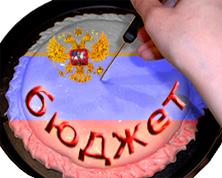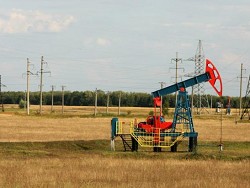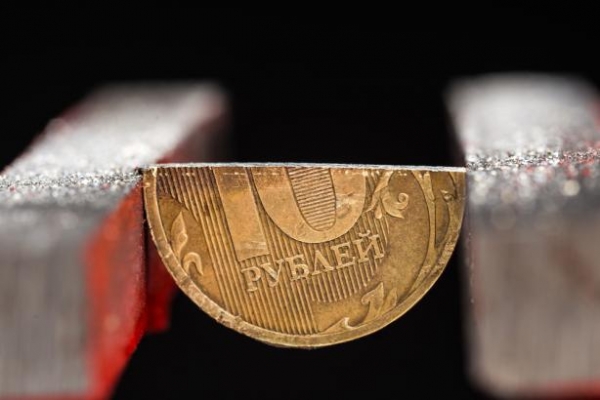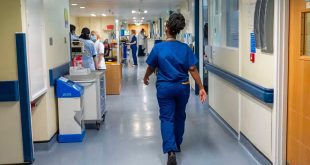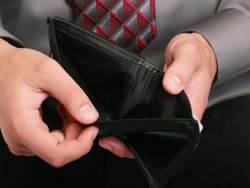
The economy Ministry has proposed an original recipe out of a recession is to reduce real pensions and incomes of the population in 2016-2017. This measure, according to calculations departments, will increase the number of poor in Russia from 13.1% in 2015 to 13.7% at the end of 2017, with a peak in 2018 at the level of 13.9%. This is stated in the revised draft of the macroeconomic forecast of the Ministry of economy for 2016-2019, according to “Kommersant”.
According to the target scenario (it assumes constant average annual prices of oil at $ 40 a barrel), the reduction in real disposable income in 2016 should reach 2.8% in 2017 – 0,3%. More stringent should be the reduction of real pensions: in 2016 to 4.8%, in 2017 — 2%. Further, up to 2019, it is assumed pensions indexed only for inflation.
To somewhat mitigate the loss of the Russians, the Ministry insists on a highly rigid monetary policy of the Central Bank: decline in inflation monetary measures to 6.5% by the end of 2016 and to 4% by the end of 2017.
The purpose of this belt-tightening is the acceleration of inward investment. As a result, according to the economy Ministry, the volume of investments in 2019 will amount to an impressive 24.1% of GDP. Moreover, their sources are not household savings and corporate profits: they are in 2018 is expected to grow by 12%, and in 2019 — by 10.8%.
The economy Ministry emphasizes that this goal will be achieved not only by control of consumption expenditure and social obligations, but the state support of “strategic and efficient investment projects” and “advancing growth of investments into innovative sector of economy”. The investment will be private (the Ministry of economy considers that the capital outflow from Russia in 2019 to zero, and investors will begin to invest in the Russian economy), and state — of the national welfare Fund (NWF).
In this target scenario is not an alternative to structural reforms. So, the increase in the retirement age, changing the structure of Federal spending and reform the labour market initiatives of the Ministry of economy do not contradict.
In fact, the Ministry Alexei Ulyukayev offers to pay for the transition to economic growth “hungry” for the population years that would be accompanied by employment reduction — from 72.7 million of the economically active population in 2015 to 71.5 million in 2019.
As a result, the Ministry of economy considers, it is possible to 2019 to reach a GDP growth of 4.5%. However, the state funds to stimulate this growth will be at that time is mostly spent.
Not the fact that the plan of the Ministry of economy will be unconditionally accepted. Tuesday, 10 may, Russian state Duma speaker Sergei Naryshkin said that the Russian Parliament is, most likely, will not support proposals to reduce the salaries of state employees. But if we are talking about the salaries of citizens working in the private sector, “it is not the responsibility of the Ministry of economic development, and the competence of the shareholders of enterprises”.
However, the document prepared by the Ministry of economy 21 April, was agreed upon by the government “as a whole”. And the Cabinet is clear that the stagnation must be overcome, even unpopular measures.
What is behind the initiative of the Ministry of economy, will Russia freeze salaries and pensions of the population?
— While the scenario of the economy — only hypothesis, which is not quite well-costed, — said the head of the direction “Finance and Economics” Institute of contemporary development Nikita Maslennikov. — Its meaning is clear: today the share of investment in the corridor is 17-18% of GDP, and to achieve the required economic growth rates to 4.5% of GDP — investment, ideally, need to increase to 30% of GDP.
Indeed, one of the sources of growth investment is the reduction in the GDP shares of consumption and expenditures on social obligations. However, in the scenario of the economy these reductions is proposed to conduct only at the expense of the population. And it begs the question.
Yes, this practice, as the history of the world economy, have been repeatedly used to overcome the crises. For example, in some cases it was a question on the moratorium on the increase of salaries and pensions. But today these recipes I think look outdated.
All these measures are spelled out in detail in the textbooks, they are considered economic classics. But the problem lies in the fact that the global economy and the national economy is rapidly changing and the old patterns in them no longer work.
I believe that if engaged in inflow of investments in Russia, primarily by reducing the share of government in GDP. More precisely, by reducing the share of the public sector and the share of government consumption. These measures will give impetus to the restructuring of the Russian economy, and to the development of private business.
If we analyze the structure of Russia’s GDP in terms of the sources of its formation, it appears that the public sector occupies in this structure, 60%, and only 20% have on small business. And you have to understand: in this scenario, investments in the amount of 30% of GDP simply cannot arise.
Meanwhile, in the scenario of Ministry of Economics about the need for reducing the share of public sector was not a word. But if the government we don’t touch, and it is in the economy maintains the status quo, to increase investment and indeed remains only at the expense of the population.
But I still believe that the current proposals of the Ministry of economy is the beginning of a great debate that will be continued on may 25 at a meeting of the Presidium of the economic Council under the President of Russian Federation Vladimir Putin. Only then can a substantive discussion on the initiative of the Ministry Alexei Ulyukayev.
I want to stress that these initiatives did not eliminate the necessity of institutional change in a snap of our economy. Sometimes these changes are called structural reforms, sometimes “reboot” the socio-regulatory environment. But in any case, one of the most important items on this agenda — reducing the share of government in GDP. According to my estimates, if you reduce this proportion from 60% to 40%, and at the same time to increase the small business share from 20% to 40%, to achieve economic growth of 4.5% of GDP per year is possible.
“SP”: — the speaker can not understand that we have observed a bias in the structure of the economy, but nothing about reducing the state’s share does not speak. Why? He believes that at the current rate of power will not go for it?
— The structure of the distribution of GDP and the structure of its formation is still different things. While the Ministry has presented its proposals only on the first point: the Agency proposes to increase investment by reducing consumption. Second paragraph — how to change the structure of GDP formation — is left out of the equation. I think eventually it comes up to him.
In fact, the current initiative of the Ministry of economy can be considered a good intellectual provocation. The Agency seems to be saying to the government: if the economy does not change anything, to increase growth rates we do not remain, how to plant a population in the strict economic diet — to enter the moratorium on increase of salaries and pensions.
However, there is no guarantee that prices during this time will not grow. Without the notorious structural reforms, I believe, to reach the level of inflation of 4% by 2017 is simply unrealistic.
“SP”: — is it the government can go for such a moratorium before the election?
In the current year and no elections have nowhere else to lower incomes. The problem is that in Russia there is a crisis of consumption. As stated at the end of April , Deputy Prime Minister Olga Golodets, for certain types of light industry products consumption fell by 20%, and food products came to the fore. This is a very disturbing economic signals.
If this situation will last, and the entire 2017, the mood of the population for the presidential elections 2018 will be clearly not the most optimistic. All this, in my opinion, prompting the authorities to reforms in the economy, to develop a compromise.
“SP”: — What is the deadline of the Kremlin in this situation?
— If in 2017 the government will not do structural reforms, our economy will be destined to increase just 2% of GDP over the next 5-7 years. It is not enough for execution, including social obligations.
In my opinion, — given the slowness of the machine of public administration, — we have a maximum of a year to lose. If nothing is done to reform the economy, the system will enter in a situation of extreme instability, when any external shock will be enough to our economy have tumbled down…
— If you declare a moratorium on increases in salaries and cease to index pensions, cheaper labor, — says doctor of economic Sciences, Professor of the Academy of labour and social relations Andrei Gudkov. — According to the precepts of the classics of political economy, is cheaper — in theory — should have a positive impact on the growth rate of the economy.
But I’m afraid in practice will be different. Investments from abroad in Russia still will not go. Let me remind you that in late March the largest European banks — BNP Paribas, Credit Suisse, Deutsche Bank, HSBC and UBS — declined from placement of Russian Eurobonds for $ 3 billion, as reported by The Wall Street Journal. Prior to this, from participating in the transaction on the advice of the US authorities refused American Bank of America, Citigroup, JPMorgan Chase, Morgan Stanley, Goldman Sachs and Wells Fargo. And this situation will not change because in Russia cheaper labor and reduced inflation.
In addition, in Russia already now, without any further reductions in disposable income, dramatically decreases the demand. People don’t buy goods because they simply did not have enough money. If the same measures will be carried out, which now offers Alexei Ulyukayev, the money from the population will not be quite.
It smells and not even a collapse in the economy — the smell of rebellion. When the streets come not office plankton, and the workers and retirees.
Pension in Russia today is that of poverty of pensioners is only a few thousand. In the face of rising prices and the lack of indexation of pensions transition from “honest” poverty in dire poverty will happen almost instantly — within a year. And then — for God’s sake — the economy Ministry will be able somehow to manipulate statistics proving that the number of poor increased by only 1%…

